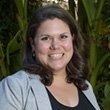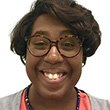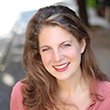What does success look like? In this episode, the Fellows talk about changing definitions of success, and some give advice to younger selves.
You can enjoy the episode in its entirety or listen to segments from particular Fellows.
Frank 5 Episode 5 (Success): Full Episode
What does success look like? In this episode, the Fellows talk about changing definitions of success, and some give advice to younger selves.
 “My understanding of success has really evolved.”
“My understanding of success has really evolved.”
Marissa Davis ’08 speaks with Professor Rachel Buurma.
Marissa is a bridge-figure, social engineer and advocate for creating sustainable pathways to a better quality of life for historically disenfranchised communities.
 “It wasn’t a failure because I got a D in the class. It was a failure because I gave up.”
“It wasn’t a failure because I got a D in the class. It was a failure because I gave up.”
Kara Peterman ’09 speaks with Professor K. Elizabeth Stevens.
Kara is a structural engineering experimentalist who joined the department of Civil and Environmental Engineering at UMass Amherst in 2016. She is passionate about outreach and has promoted the advancement of underrepresented groups in engineering for over a decade.
 “Before Swarthmore, success was making at least six figures.”
“Before Swarthmore, success was making at least six figures.”
Kimberly St. Julian-Varnon ’12 speaks with Professor Sa’ed Atshan.
Kimberly is a high school history teacher and community college professor. She’s also a Texan, African-American woman, Russian-speaker, and Magic the Gathering player.
 “I would love to be the artistic director of a theater.”
“I would love to be the artistic director of a theater.”
Nell Bang-Jansen ’11 speaks with Professor Tim Burke.
Nell is a Philadelphia-based theater director and creator and is currently working on a theater piece made with and for people who work as caregivers.
 “You should trust yourself. You should take your time.”
“You should trust yourself. You should take your time.”
Sam Sussman ’13 speaks with Professor Krista Thomason.
Sam is the co-founder of Extend, a start-up NGO focused on conflict resolution education in Israel-Palestine. He’s also an award winning screenwriter.
Frank 5 Episode 5 (Success): Transcript
Tim Burke: It’s the Frank Five Fellow’s podcast series. Informal conversations with recent liberal arts grads. They’re in business. They’re engineers. They’re educators. They’re artists.
What does the road to success look like when you’re just out of college? In this episode the fellow’s and their faculty partners talk about how their understandings and definitions of success have changed since they’ve graduated.
Up next Marissa Davis and Rachel Buurma.
Rachel Buurma: How do you think about what it means to live a good life? A life that you’re happy with, and I’m particularly curious about how and if you thought about that before college? How you were thinking about that in college, and how your ideas about what it means to live a good life or a success life have changed since college? I know that’s a big question.
Marissa Davis: It is indeed a big question, but fortunately or unfortunately one that I’ve thought a lot about, and in fact is one that my understanding of success, my definition of success has really evolved over time. Growing up, I’m one of three girls, my mother for most of my life was a single parent so for me at that time I think growing up the idea of success was to largely economically, socially, be in a better position than my mother, my grandmother, a lot of my family members. Because the idea is that their sacrifices paved the way so that I could actually have a better life.
When I think at that point even before college when I thought about what success looked like it was being able to have a great job that paid well. To receive all the accolades and accomplishments that would come from doing well either in school or in whatever job I would take on. Then when I got to college, at least the first half of it was a similar kind of thinking. My goal here is to do well academically so that I can then get the right kind of job that I would need outside of college. Or to get the right grades that I needed to ultimately be a strong candidate for graduate school, so that at least at that time I could go to a good law school, become a great lawyer and be well regarded for the work that I was doing.
At that point it was public interest law that I was interested in. Then several years after college it was a constant journey of thinking that in order to be successful it rested a lot with all the things that I could do. Then there was a point that I realized that just doing things was never sufficient to actually find proper full meaning in life. That in fact, for me the way I see what success looks like now isn’t really all the things I can do, but rather it’s really understanding fundamentally who I am, and accepting the fullness of who I am, and offering the best of those pieces of me to things that I do so that it isn’t that I’m starting from a place of just trying to do certain things well.
It’s that because I am feeling good about myself and that I understand and acknowledge the wholeness of who I am I have no other option but to let some of that out and some of the things that I end up getting to do is just like an extension of me wanting to express the fullness of who I am. That is at least how I see success now, and I think when I am … When there is, I wouldn’t say necessarily happiness. I think happiness is kind of a fleeting thing. It’s more finding peace with who I am. It paves the way for a lot of other opportunities.
Burke: Up next, Kara Peterman and Elizabeth Stevens.
Kara Peterman: I don’t know why anyone expects a college freshman at 17, 18, 19 years old to have any idea of what they want to do with their lives, but I’ve truly felt like Swarthmore enabled us to become better people. To make mistakes. To change our minds. To explore. To be young people in a nurturing environment and it’s that part that the life after Swarthmore you don’t get too many of those communities.
K. Elizabeth Stevens: Yeah, it’s a … Yeah. It’s so interesting because we do think about messing up and succeeding as kind of different things. Categorically different things, but I think here messing up can be part of succeeding which is an excellent segue into this impossible question. Which is so what … The question is what does success mean to you? But that’s such a big question. I guess what I would ask to just put a spin on it, is has your definition of success changed? When you were her in college, did you have an idea of what it would mean to be successful in life and has that shifted at all as you’ve been out of college and in the world?
Peterman: Yeah. Ultimately I believe, I’ve always believed this that a successful person is a happy person. Somebody who is content in their life. Somebody who is satisfied with their existence. It’s an existential satisfaction. To me that is success. Whatever situation brought you to that existential satisfaction to me has worked out. Worked out well for you.
In college I can say that just as an anecdotal story here as an anecdote I did very badly in one of my math classes in my first year of Swarthmore. Things started going down hill right at the beginning of the semester, and because I was failing so badly I sort of thought it was a lost cause and gave up as a consequence. It’s very easy to give up when you’re doing badly, and the whole semester was just a constant deflation where I would put in the effort or put in some effort. Lets be honest, not all the effort.
I would put in some effort and get a very low grade and I finished with a D in the class and it’s on my transcript for all the world to see. That was a D in linear algebra, not even a very advanced math class.
Stevens: Oh no.
Peterman: Yeah, at the time that was a very obvious failure. In hindsight it wasn’t a failure because I got a D in the class. It was a failure because I gave up. So when I think about what success means now, I consider something successful when I come away better because of it. A lecture or a class or even in grad school if I came away with more knowledge, if my knowledge was improved. If I came away a better person. If I came away with a wider worldview then I considered it a success.
The grade is a much more arbitrary for me after that point. Even now real life doesn’t give you too many grades, but what other people think of how much you learned is inconsequential to what you actually learned. It’s the same with the basic definition of happiness.
If you are not making very much money. Or if you are living in a not very nice apartment or something, but you’re happy about it then it doesn’t matter what the person next door thinks. It doesn’t matter at all. If you’re content with how you’re contributing to the world and how you’re living your life then that’s the ultimate definition of success, I think.
Burke: Up next, Kimberly St. Julian-Varnon, and Sa’ed Atshan.
Sa’ed Atshan: Kimberly, what does success mean to you?
Kimberly St. Julian-Varnon: Do you want pre-Swarthmore me or current me?
Atshan: Well we can [inaudible 00:10:18] them.
St. Julian-Varnon: Before Swarthmore, success was making at least six figures, and having a Mercedes. That was the end all, be all for me, because I had watched all these lawyer movies and they all make tons of money and drive really expensive cars. Doing that and being able to make enough money so my parents could retire. Those were my idea for success.
Now, it’s less like money plays very little in my idea of success now. It’s mostly about helping my community and having a legacy, but it doesn’t necessarily have to be personally attached to me. Something I’ve done, or something I’ve started has helped so many others that I continues to affect change generationally. That’s the big thing that I’m looking at now.
So I think success and our idea of success changes as we get older and get exposed to more things. So when I’m 80 I might have a totally different idea, but right now that’s what it is.
Atshan: So how will you know that you have been successful in life as well as in work?
St. Julian-Varnon: I don’t know. I think, it’s really interesting because an example is that I’ve come full circle. My department head now at the high school was my AP economics and AP government teacher in high school and I remember just battering him with questions like “What should I major in?” Then when I went to Swarthmore, “What classes should I take?” Then as I was graduation from Swarthmore “Which graduate program should I go to?”
Now I’m getting emails from my students who are in college now who are asking me “Should I go to law school? What classes should I take?” So I think that’s kind of success where I’ve made enough of an impact on them that they seek my help and they trust me. It’s a lot of responsibility, and I told my department head “Thank you so much. I did not realize how much stress I put on you with these questions.”
I think that’s success, having my students achieve the lives that they want to live. I think is a big part of my idea of success.
Burke Up next, Nell Bang-Jensen and Tim Burke.
Burke: Do you have other sort of fancies that you permit yourself occasionally? Or other people in theater or in performance or in writing where you look at them and you say “That’s what I want to be?”
Nell Bang-Jensen: Yeah. I think I ideally would really love to be the artistic director of theater that prioritizes the values and art making I believe in. For me that is a balance of having an experimental sort of pig iron aesthetic, but making work that is not insular and that’s working with people who are actually in that community and do not identify as artists. I think of my goals is sort of like Oscar uses the public, which is in some ways with some of their work trying to break down the binary we’ve created in this country of who’s an artist and who’s not.
Really actually using theater as a way of creating stronger bonds between the people who make up the city or a place.
Burke: So your vision of success and of art is sort of so relentlessly outward driven. You’re really thinking carefully about how to connect with audiences and communities. How to do service and work to them. Is there a part of when you think about your aspirations that you sort of … It’s for you? It’s kind of in the sense selfish that would you say “Okay this is for me. This is what rewards me and I gotta have that.”
Bang-Jensen: I think I wouldn’t really be happy doing one or the other in terms of the balance of making art and also thinking big picture about what it is that I’m doing. I’ve been in both of those situations where I’ve been in a rehearsal room and going gig to gig and making the peace and I love that, but there’s a point where I want to be working towards something larger. I don’t want to go gig to gig. I want to be part of an organization that I believe in and that will give me a certain kind of autonomy.
Then I’ve also done the opposite where I’ve been more of an administrator for a larger regional theater and I really missed the art making part. It was great talking about mission and what our theater was trying to do, but I missed the sense of little community that you form when you’re making a piece together and getting to share it with the world.
I think that would be hard for me to have to choose one or the other, and I think the kind of dreamy thing about being an artistic director along with the many other less dreamy things about it, but the dreamy thing is that you do get a balance of creating these tiny communities in a rehearsal room that leads to an encounter. Then also being able to think big picture about “Okay what are we doing here? And who are we doing it for?”
I think sort of my path in theater so far has been craving more and more authorship over what I’m doing. I started out as a performer then learned that oh I can be a performer in devised work where I’m actually helping to write and shape the piece. Then I started doing dramaturgy, which is really looking at the research and structure of a play. Then from that I started … I craved more authorship and started craving directing. It’s sort of gone further and further into a place of having a greater sense of authorship over what I’m doing.
Burke: These seem to be some of the central … We’re talking about media skills when people talk about the gig economy, and the kinds of economic lives that recent graduates are living. This is sort of that skill that seems important is to not plan too far ahead, and to be willing to jump at things as they present themselves.
Is there a jump you have already vowed to yourself you would never take? Would you write television if television is where it’s at? At there artistic jumps you won’t take? Are there career jumps you’re sure you won’t do? Are there places you’re certain you would never live?
Bang-Jensen: That’s such a good question. I think about that a lot. I am not ruling out t.v. there’s a lot of not ruling out yet even if it would be selling out. Just more because I’m curious. There’s a lot I would be open to. I’m curious what that’s like. The things I wouldn’t do are more things that I have experienced and know I don’t want to. So I know for example it’s really frustrating for me to be in a purely administrative position at a big place, because then
I’m like “Why am I in theater?” I could be using these skills somewhere else and making more money.
I have also just realized and this is part of the professional development I’ve been doing on this artistic leadership grant I’m on now, we talk a lot about values clarification, which has been immensely helpful to me. I feel like it was a very hot in the 80’s kind of thing, but I love it. I’m a big believe in values clarification, and it’s just becoming increasingly clear to me that I want to either be heading an organization where I can shape it around my own values or be working in the service of someone who’s values are aligned with mine.
It’s really frustrating not to be and I’ve been in that position before. So being able to articulate what my values are and what kind of theater I want to be in has been really helpful for me saying “Actually that theater doesn’t seem like a good fit. Or working with that leader doesn’t seem like a good fit.” Being able to say no to that with the confidence that I’m doing it for the right reasons has been really helpful.
Burke: Up next, Sam Sussman and Krista Thomason.
Krista Thomason: What advice do you have that I can pass on to my first year advisee’s when they are coming and sitting and talking to me about what classes they should take or anything else? What do you wish you could go back and tell either the first years or yourself?
Sam Sussman: My brother just started at Wesley and look, I think you should really follow, this is cliché, until you do it. You should follow your passions, but it’s one of those things in life it’s a cliché until you actually do it and then it’s real.
You’re under so much pressure. I think one of the real downsides to the lead education is that you made the feel that because you can in theory do everything, you kind of have this pressure to do everything. If not you’re wasting this valuable time at this remarkable place. It is a remarkable place, but it’s also a place that is open to whatever form of yourself you want it to me.
I think you shouldn’t feel pressure to find that form right away. You should take your time. You should take very different classes. You should hang out with very different people. You should try to be embedded in a few different social groups. You should definitely stick out with friends who are different than you. I’m not talking about the superficial categories that we all know. From a different place, they have a different class background. Not that these are superficial things, but what I mean is people who really see the world in different ways.
People who’s metaphors are different than yours. That’s what you should try to find. I think you should trust yourself. If you think you really want to take that fourth class in english literature, which may be commits you to doing it as a major or minor, well yeah. Maybe that means you want to do a major or minor. That’s okay. Right?
I think it’s important to have a little patience with hey don’t stress that much about your first job. Your first job might not be the thing that brings you … It might not be the truest last best form of you. It would be weird if it was. Just take some time to experiment with different version of yourself until you find something that makes you comfortable. You don’t have to do that econ major.
Thomason: I like that you said follow your passion sounds easy until you do it. The equivalent that I find myself saying a lot is, learn how to trust your gut. Which is harder than it sounds. Much harder than it sounds. It’s a lot easier, I think particularly as you were describing as far as being a very cerebral sort of place. It’s very easy to second guess yourself. It’s very easy to listen to that smart sounding advice. It’s harder to stick with that hunch. That gut feeling. That sense that you have that’s not maybe articulate, that’s maybe implicit. That isn’t something that you can fully put words on, and yet that might be leading you in the right direction more than you think.
Burke: Thanks for listening. This podcast was produced by the Aydelotte Foundation and the language and media centers at Swarthmore college. To learn more visit W-W-W Swarthmore E-D-U / Aydelotte-Foundation.
